Stig Petersen
Spectral Inference Networks: Unifying Spectral Methods With Deep Learning
Jun 06, 2018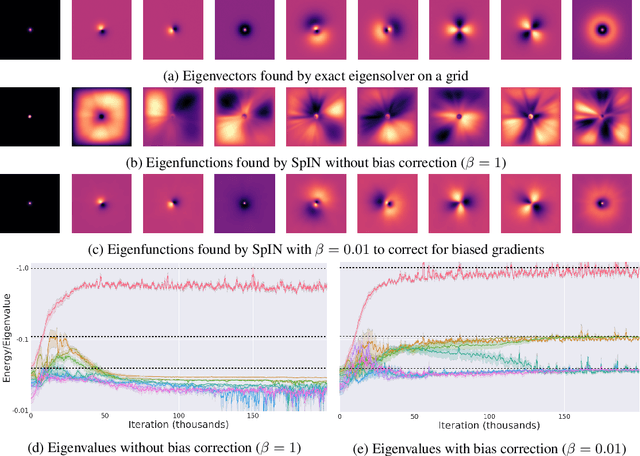

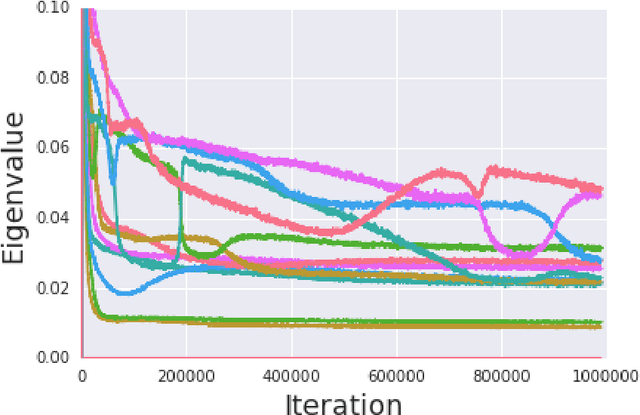
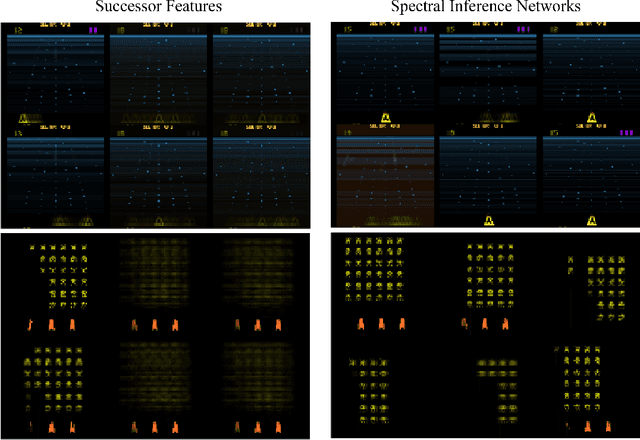
Abstract:We present Spectral Inference Networks, a framework for learning eigenfunctions of linear operators by stochastic optimization. Spectral Inference Networks generalize Slow Feature Analysis to generic symmetric operators, and are closely related to Variational Monte Carlo methods from computational physics. As such, they can be a powerful tool for unsupervised representation learning from video or pairs of data. We derive a training algorithm for Spectral Inference Networks that addresses the bias in the gradients due to finite batch size and allows for online learning of multiple eigenfunctions. We show results of training Spectral Inference Networks on problems in quantum mechanics and feature learning for videos on synthetic datasets as well as the Arcade Learning Environment. Our results demonstrate that Spectral Inference Networks accurately recover eigenfunctions of linear operators, can discover interpretable representations from video and find meaningful subgoals in reinforcement learning environments.
StarCraft II: A New Challenge for Reinforcement Learning
Aug 16, 2017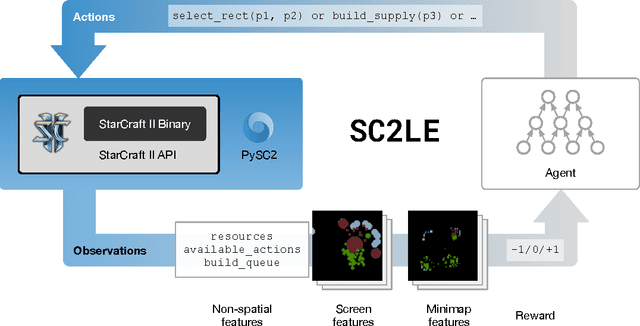
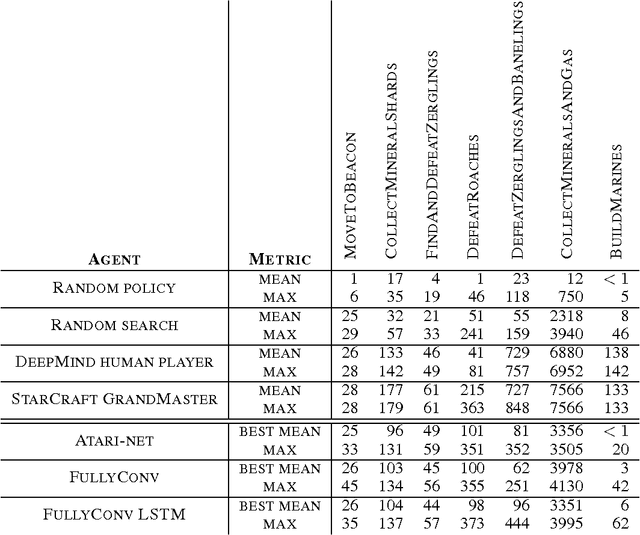
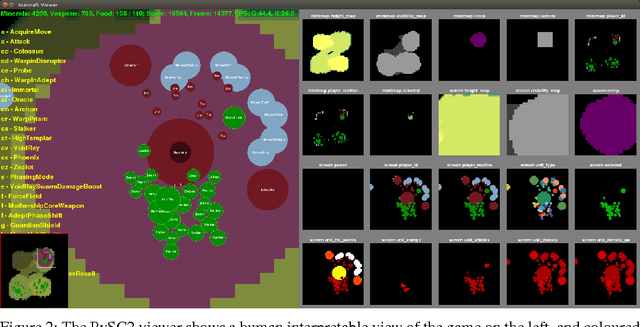

Abstract:This paper introduces SC2LE (StarCraft II Learning Environment), a reinforcement learning environment based on the StarCraft II game. This domain poses a new grand challenge for reinforcement learning, representing a more difficult class of problems than considered in most prior work. It is a multi-agent problem with multiple players interacting; there is imperfect information due to a partially observed map; it has a large action space involving the selection and control of hundreds of units; it has a large state space that must be observed solely from raw input feature planes; and it has delayed credit assignment requiring long-term strategies over thousands of steps. We describe the observation, action, and reward specification for the StarCraft II domain and provide an open source Python-based interface for communicating with the game engine. In addition to the main game maps, we provide a suite of mini-games focusing on different elements of StarCraft II gameplay. For the main game maps, we also provide an accompanying dataset of game replay data from human expert players. We give initial baseline results for neural networks trained from this data to predict game outcomes and player actions. Finally, we present initial baseline results for canonical deep reinforcement learning agents applied to the StarCraft II domain. On the mini-games, these agents learn to achieve a level of play that is comparable to a novice player. However, when trained on the main game, these agents are unable to make significant progress. Thus, SC2LE offers a new and challenging environment for exploring deep reinforcement learning algorithms and architectures.
DeepMind Lab
Dec 13, 2016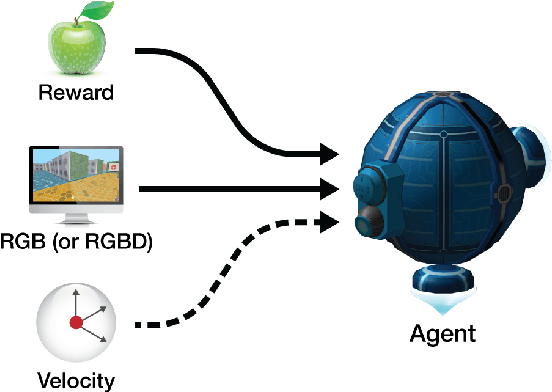

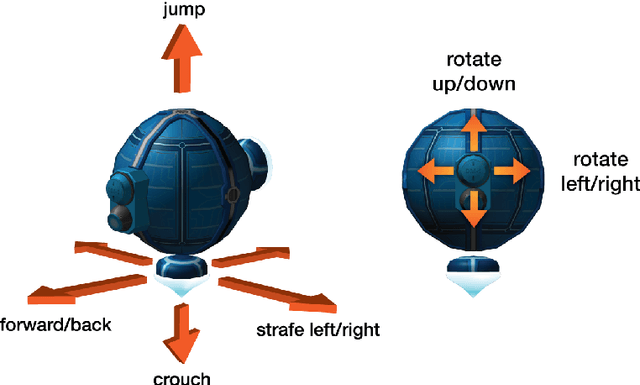
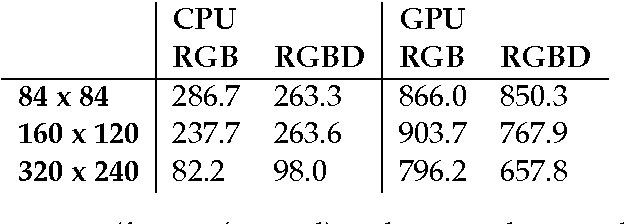
Abstract:DeepMind Lab is a first-person 3D game platform designed for research and development of general artificial intelligence and machine learning systems. DeepMind Lab can be used to study how autonomous artificial agents may learn complex tasks in large, partially observed, and visually diverse worlds. DeepMind Lab has a simple and flexible API enabling creative task-designs and novel AI-designs to be explored and quickly iterated upon. It is powered by a fast and widely recognised game engine, and tailored for effective use by the research community.
Massively Parallel Methods for Deep Reinforcement Learning
Jul 16, 2015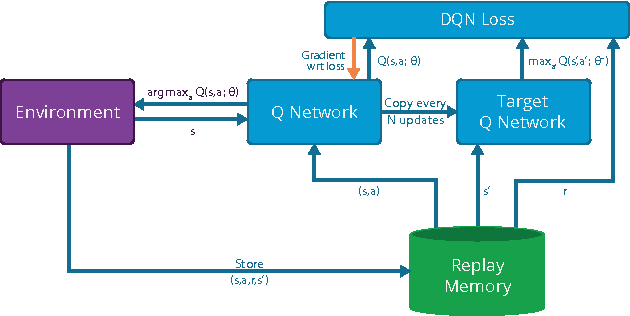
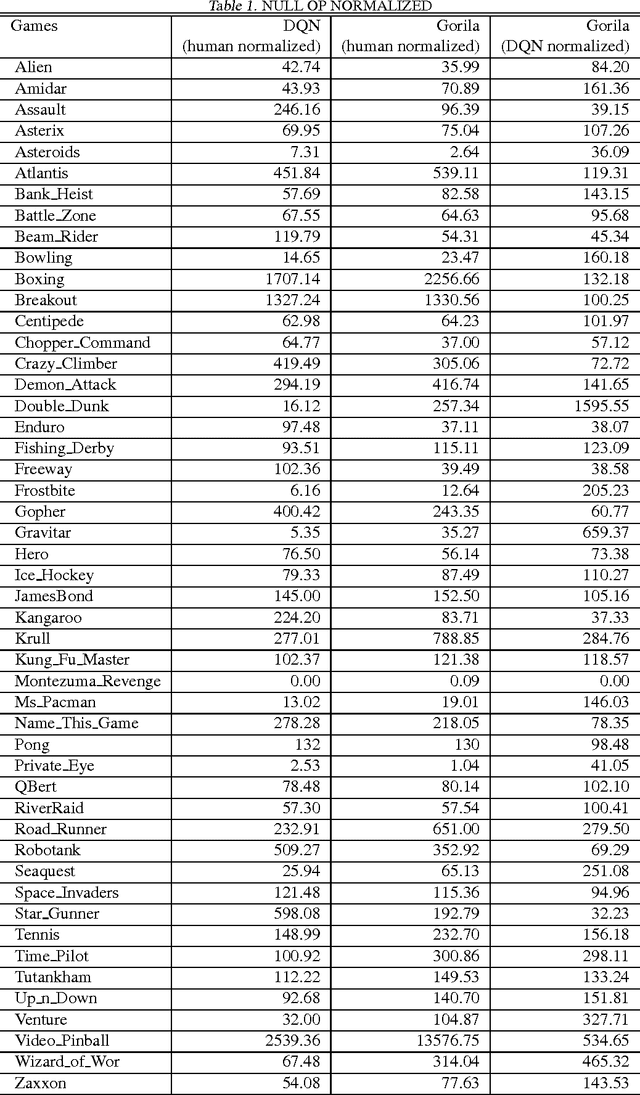
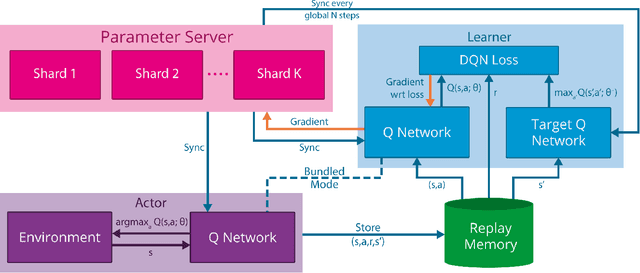
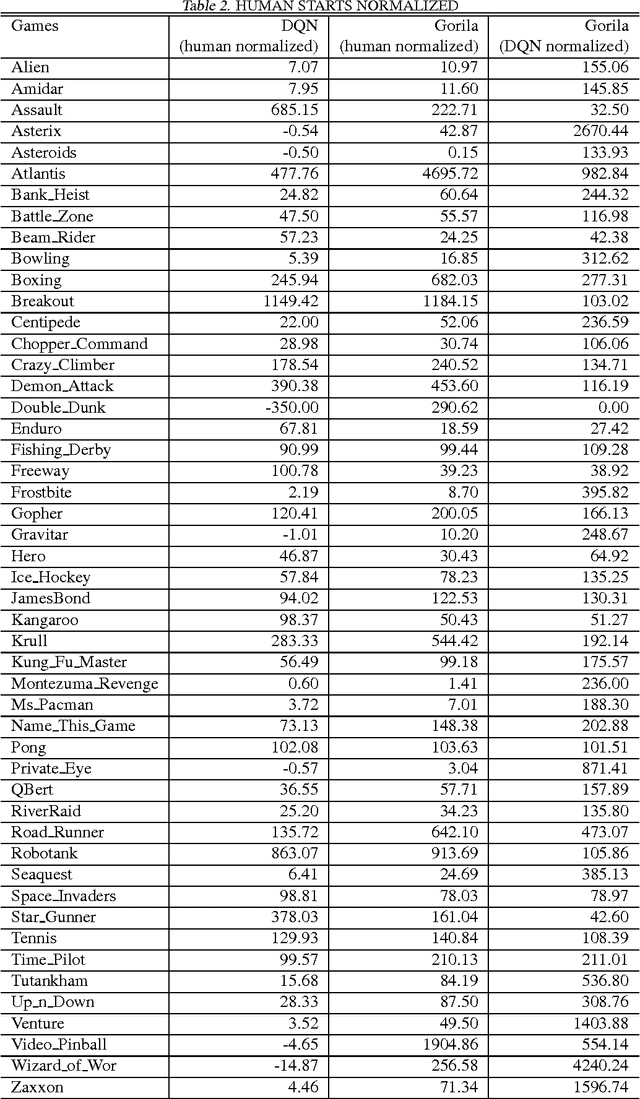
Abstract:We present the first massively distributed architecture for deep reinforcement learning. This architecture uses four main components: parallel actors that generate new behaviour; parallel learners that are trained from stored experience; a distributed neural network to represent the value function or behaviour policy; and a distributed store of experience. We used our architecture to implement the Deep Q-Network algorithm (DQN). Our distributed algorithm was applied to 49 games from Atari 2600 games from the Arcade Learning Environment, using identical hyperparameters. Our performance surpassed non-distributed DQN in 41 of the 49 games and also reduced the wall-time required to achieve these results by an order of magnitude on most games.
 Add to Chrome
Add to Chrome Add to Firefox
Add to Firefox Add to Edge
Add to Edge